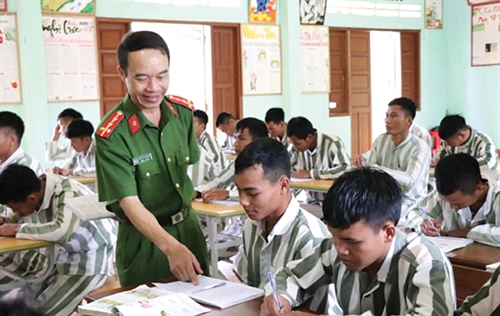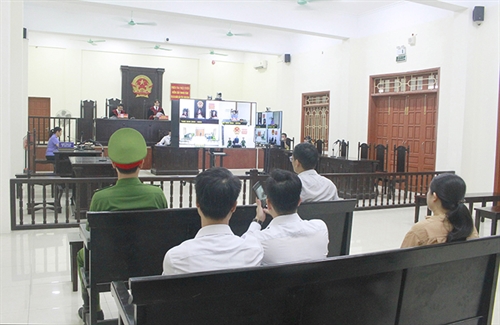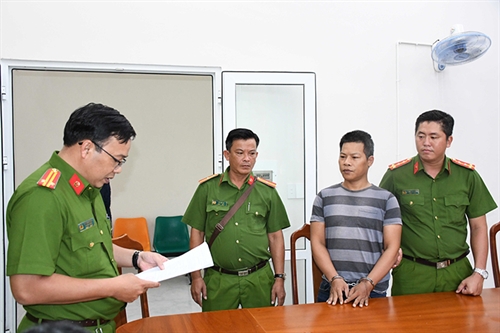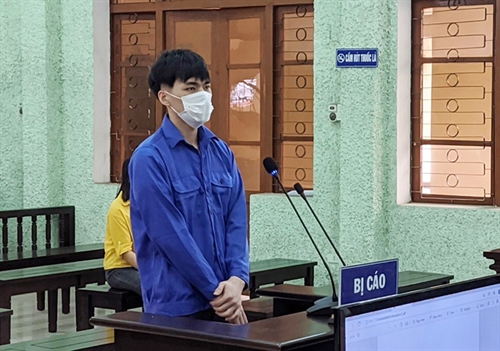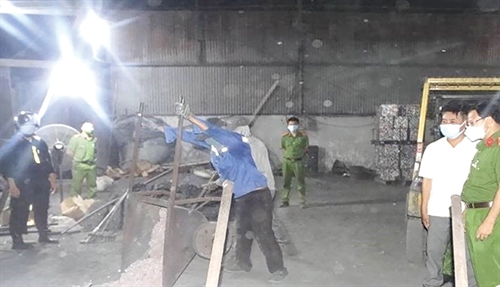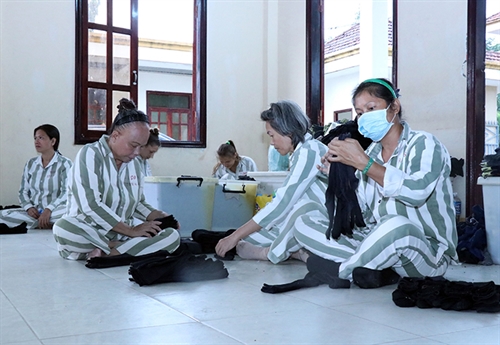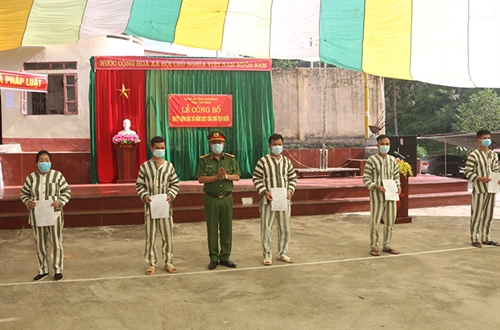Nguyen Van Nam, LL.D.
Vice Dean of the Faculty of Law
People’s Security Academy
Introduction
The official publication of court decisions and judgments has made breakthroughs during the process of judicial reform in Vietnam. One of the criteria of the transparent legal system set by the World Trade Organization (WTO) is that the court system in each member state must publicly publish court judgments and judicial decisions. Before Vietnam’s accession to the WTO, the Vietnamese court system did not have a tradition of publicly publishing its judgments and decisions for public access. In the 1990s, some foreign researchers commented on the reform of the Vietnamese court system, including the remark that the Vietnamese courts should publicize their judgments for access by lawyers and the public.[1] Recently, the innovation of thinking in the judicial reform of the court system has indicated that the Vietnamese legal system is affected by WTO regulations and, therefore, Vietnam has been complying with the WTO’s principle of legal transparency, including mandatorily publishing court judgments and decisions to meet the requirements of the principle of legal transparency.
With the help of the United States Agency for International Development (USAID) within the framework of the Star Project in Vietnam, since 2004 the Supreme People’s Court (SPC) has for the first time published two volumes of cassation decisions of the SPC’s Judicial Council.[2] In 2006, 2007 and 2009 respectively, the SPC selectively published the Judicial Council’s cassation decisions (on criminal, civil, business, labor and commercial cases). After the SPC’s Judicial Council issued Resolution 03/2017/NQ-HDTP on March 16, 2017, on the publication of judgments and decisions on portals of courts, so far the Vietnamese court system has officially published 952,053 court judgments and decisions.[3]
In this article, the author would like to provide legal grounds for the publication of court judgments and decisions in Vietnam and analyze benefits from the mandatory publication of court judgments and decisions.
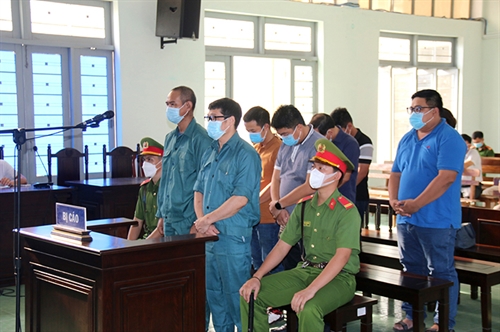 |
The SPC’s website on publication of court judgments and decisions Photo: https://congbobanan.toaan.gov.vn |
| The SPC’s website on publication of court judgments and decisionsPhoto: https://congbobanan.toaan.gov.vn |
Legal grounds for the publication of court judgments and decisions
Under the 2014 Law on Organization of People’s Courts, Vietnam’s current court system is organized at four levels, including the Supreme People’s Court; superior people’s courts; courts of provinces and centrally run cities (provincial-level people’s courts); and courts of rural districts, urban districts, towns, provincial cities and the equivalent (district-level people’s courts) and military courts.[4] To date, Vietnam’s legal system has provided legal grounds for the publication of court judgments and decisions. Specifically, under the 2015 Civil Procedure Code[5] and the 2015 Administrative Procedure Code[6], judgments and decisions in civil cases and administrative cases tried at first-instance and appellate levels or according to cassation and reopening procedures must be publicly published on portals of courts at respective levels.
A very important legal ground for mandatory publication of court judgments and decisions is the SPC’s Judicial Council’s Resolution 03/2017/NQ-HDTP dated March 16, 2017, on publication of judgments and decisions on portals of courts, which guides the principles and procedures for publishing legally effective court judgments and decisions, and defines the responsibility of courts for publishing legally effective judgments and decisions on their portals.
Principles of publication of court judgments and decisions
The publication of court judgments and decisions must adhere to the following principles[7]:
- Publication of judgments and decisions must comply with the regulations on assurance of national security, state secrets, fine customs and traditions, investigation secrets, work secrets, professional secrets and business secrets; protection of private life, personal secrets and family secrets, and protection of persons aged under 18 years; and respect for lawful rights and interests of agencies, organizations and individuals.
- The publication of judgments and decisions must not infringe upon the State’s interests, public interests, and lawful rights and interests of agencies, organizations and individuals.
- To be-published judgments and decisions must ensure accuracy and timeliness, and facilitate access in accordance with the procedures specified by law.
- It is prohibited to use judgments and decisions published on portals of courts for illegal purposes.
When it comes to the publication of court judgments and decisions, it should not be perceived that courts will publish all decisions and judgments without setting any limits. Apparently, ensuring a balance between national interests, public order and legitimate interests of each individual related to court judgments and decisions requires setting of limits on unpublished court judgments and decisions, more specifically:
- Court judgments and decisions that have not yet taken legal effect may not be published, including: judgments and decisions that are wholly or partly appealed or protested against.
- Judgments and decisions on cases or matters tried or settled at closed (in-camera) court hearings. Usually, courts try cases of all kinds in public. Article 31.2 of the 2013 Constitution of Vietnam provides: “A person charged with a criminal offense shall be promptly tried in an impartial and public manner by a court within a legally established time limit. In case of a closed trial in accordance with law, the verdict must be publicly pronounced.” Article 25 of the 2015 Criminal Procedure Code provides: “The court holds a hearing in public, everyone has the right to attend the court hearing, except the case specified in this Code. In special cases, it is necessary to keep state secrets, protect fine customs and traditions of the nation or persons aged under 18 years or to keep privacy secrets at the legitimate request of the involved parties, the court may hold a closed trial but must pronounce the judgment in public.”[8]
- Judgments or decisions on cases or matters that are publicly heard or settled by courts falling into one of the following cases may not be published:
- Those having contents on the list of state secrets as provided by the Government or contents that the State has not yet announced and might, once disclosed, cause harm to the Socialist Republic of Vietnam;”[9]
- Those containing information on financial investment activities, professional know-how and technological secrets that have not been disclosed, which can be used to create advantages in business activities and requested to be kept confidential by proceeding participants in the course of trial or settlement of cases by courts;
- Those having contents that adversely affect cultural traditions, fine customs and practices that have been widely recognized and applied in a region, area, ethnic group or residential community; and,
- Those binding on proceeding participants who are aged under 18 years.
As per Vietnam’s law, the range of judgments and decisions of Vietnamese courts that may be published on portals of such courts covers all types of judgments and decisions rendered by such courts at first-instance, appellate, cassation or reopening hearings for all types of criminal, civil, business, commercial, marriage and family and labor cases and matters falling under their jurisdiction, specifically as follows[10]:
- First-instance judgments that are neither appealed nor protested against; appellate judgments; cassation or reopening decisions on settlement of criminal, administrative, civil, marriage and family, business, commercial and labor cases;
- Decisions on settlement of civil matters that have become legally effective, cassation or reopening decisions on settlement of civil matters;
- Decisions to declare bankruptcy of enterprises or cooperatives; decisions on settlement of petitions or protests against decisions to declare bankruptcy of enterprises or cooperatives; and,
- Decisions on application of administrative measures at people’s courts that have become legally effective; decisions on settlement of complaints, petitions or protests against decisions on application of administrative handling measures.
Benefits of the publication of court judgments and decisions in Vietnam
Firstly, the strict performance of the responsibility to publish court judgments and decisions in Vietnam shows the realization of the people’s right to access to justice. When the Constitution empowers the courts[11] to safeguard the right to justice, their judgments and decisions are actual results of their creation of justice. The publication of court judgments and decisions is the most vivid manifestation of the transparency of the judiciary system in Vietnam. Thanks to free and easy access to court judgments and decisions, the people, lawyers and legal experts have the right to comment on the legal reasoning, rightness and wrongness of publicized judgments and decisions.
Secondly, the publication of judgments and decisions of superior courts and of the SPC’s Judicial Council has an important significance in guiding the uniform application of law nationwide. Especially when judgments and decisions of appellate courts and the Judicial Council are nominated and introduced to be selected as court precedents, the value of guidance on the uniform application of the law will be even higher.
Thirdly, the mandatory publication of court judgments and decisions will make judges more prudent in making their decisions since they, more than anyone else, know that their judgments and decisions will be read and commented on by colleagues, lawyers and members of the public.
Lastly, published court judgments and decisions will constitute a legal source that contributes to improving practical efficiency of the law popularization, dissemination and education in Vietnam. The application of the case method in law training in Vietnam will be actively supported by the use and updating of court judgments, decisions and precedents that have been published by Vietnamese courts.-[12]
